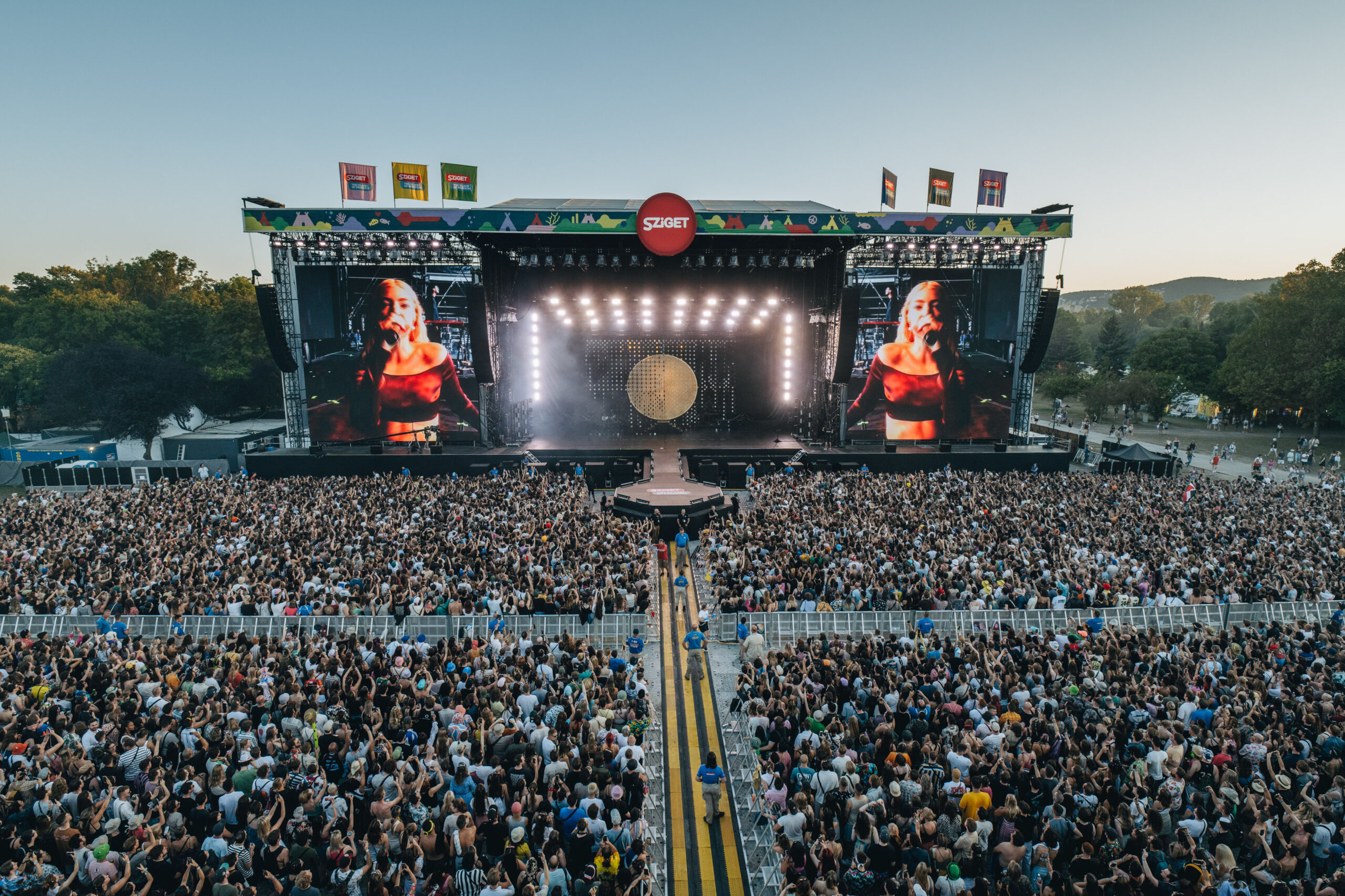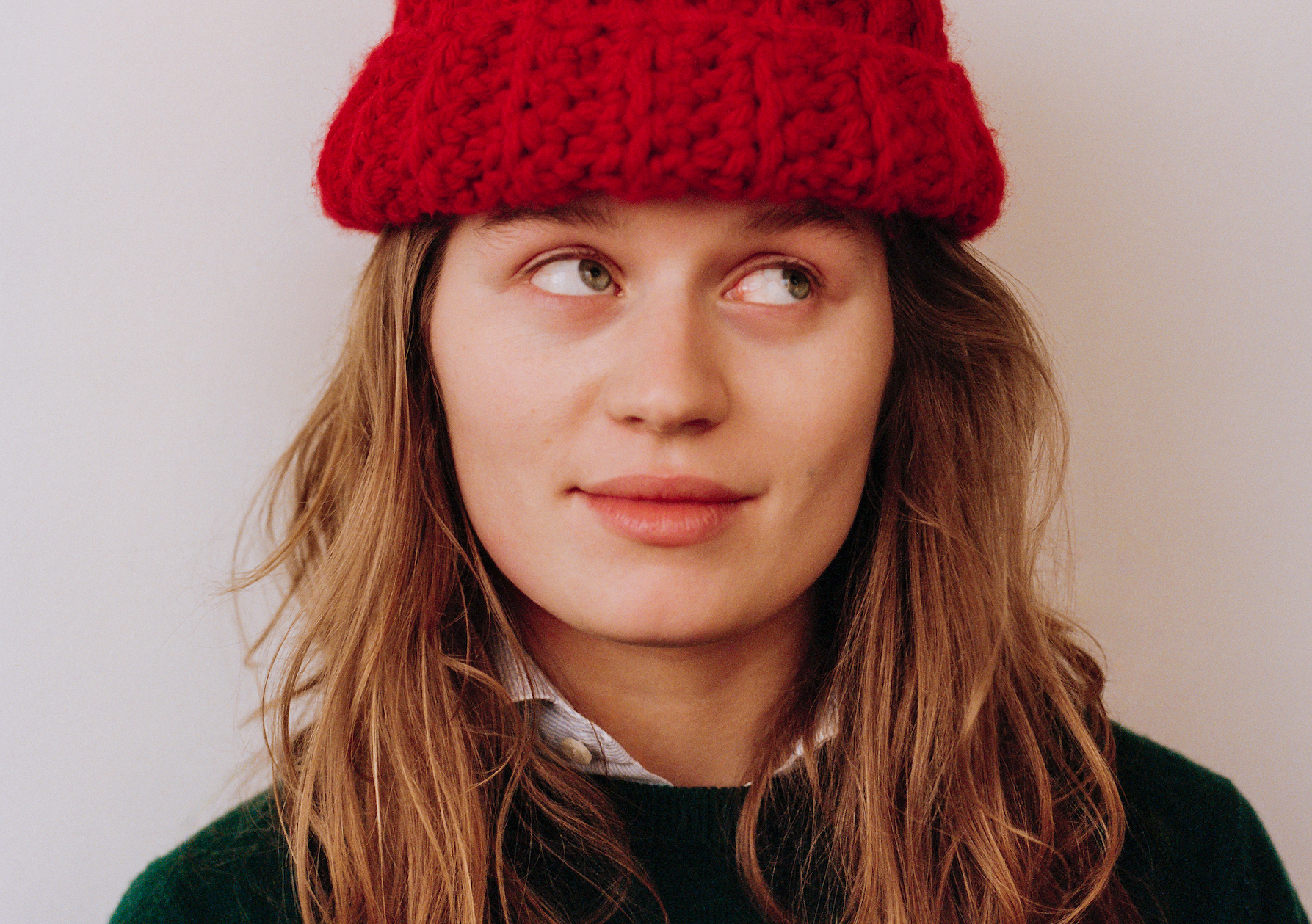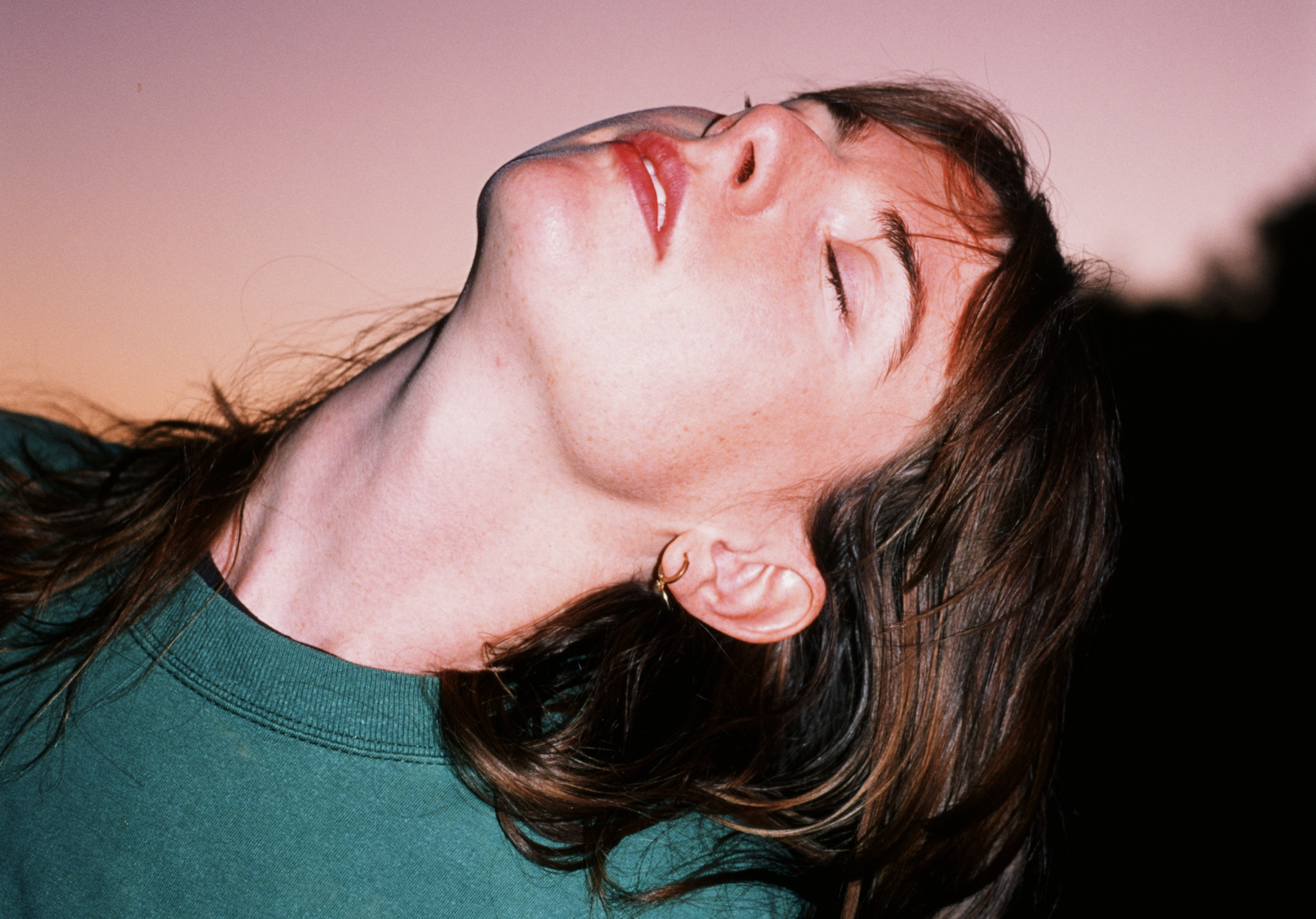Foto-© Bridgette Winter
Angie McMahon hat am 27. Oktober mit Light, Dark, Light Again (via AWAL) eines der besten Alben dieses Jahres veröffentlicht. Die australische Künstlerin nahm die erzählerische Kraft ihres Solo-Debüts Salt (2019), setzte noch eins drauf und schrieb ein Album voller Kraft, Zuversicht und Überraschungen.
Dass diese Zuversicht und Leichtigkeit eine Aufgabe war, die sie sich selbst verordnete, erzählt sie uns im Interview über Zoom im August. Wir erfahren, warum sie das Album für die Vinyl-Version kürzen musste und dass sie im härtesten Schreibprozess ihres Lebens versucht war, einfach Songs auf SoundCloud hochzuladen und das ganze Spiel sein zu lassen. Wir sprechen darüber, warum Light, Dark, Light Again im Kern für sie ein Selbsthilfe-Album ist, dass es ihr viel abverlangt hat, sich ins Unbekannte zu begeben und beispielsweise mit Brad Cook zu produzieren und warum wir plötzlich so viele Naturreferenzen in ihrer Musik finden. Im Interview wie auf der Platte immer der Aufruf: Du entscheidest, welche Stimmen du zu dir sprechen lässt. Heilsame Gedanken für Künstlerin und Publikum.
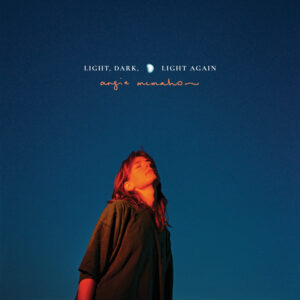 The last time we spoke, we were in your hotel lobby in Berlin. It was pre-covid, before you released Salt and for me that feels like a lifetime away. I feel like a different person, and I wonder if you do too. So many things happened. I just saw that your face is on Times Square. How does it feel to promote an album again looking back and looking forward?
The last time we spoke, we were in your hotel lobby in Berlin. It was pre-covid, before you released Salt and for me that feels like a lifetime away. I feel like a different person, and I wonder if you do too. So many things happened. I just saw that your face is on Times Square. How does it feel to promote an album again looking back and looking forward?
I definitely feel like a different person. You are not the first person to say the same. We have all entered a new realm of being. I feel lucky to have gone through a shift where I feel calmer. At the same time, I am reminded of how anxious and intense the feelings are when I am promoting myself. On the one hand, I felt more capable and grown. On the other hand, maybe I felt more capable and grown because for this period, I did not have to do self-promotion. Now that I am doing it again, I am like, “It is back! All of the feelings.” It is such a blessing to be able to share art, talk about it, and have a better understanding of what I struggle with. It is a fear of failure. By going back into the arena and show your vulnerable stuff again and how you would like to be perceived, you are creating the opportunity to be misinterpreted or disliked, rather than being mysterious and hiding. I understand it now more of a blessing. All those feelings of fear and anxiety are like colors and invitations to dive into.
Listening to the album is a growth process for the listener, too. You can relate it to your previous work, you are familiar with the feelings, but it is still different, an evolution. Did you start writing with the thought of wanting to make something rather new?
It has been a process of wanting to find out, who I am. The first record were songs that I had collected over years and years. Starting again from scratch was very humbling. To get into an artistic flow, the most helpful things were experiments where I felt like such a beginner and such a baby again: someone giving me a songwriting exercise or learning how to use a new music program. I was trying to release the idea that I know things and that I know how it should be and what kind of person and writer I am. I did not want to imprint too much of my own expectations on myself and see where it went. There were many moments where I got in my head. That whole sophomore album curse and all the things that I am afraid of failing at kept returning to me. There were parallels with the first record that are probably inherent in who I am as an artist, but there were plenty of opportunities to experiment and collaborate and be more open and try new things. I tried to lean into that as much as I could, because ultimately, I did not want to limit myself. I did not want the fear of it not being good enough mean that I had to keep it a certain way. There was a lot of jumping off cliffs.
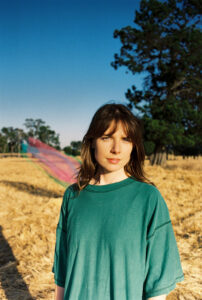 I feel like those feelings translate into the music. You are quite honest about yourself and about shortcomings or mistakes that you make, but in a strong and compassionate way. It almost feels like the way you would talk about a dear friend. It is very inspirational, but I imagine that to be a hard journey.
I feel like those feelings translate into the music. You are quite honest about yourself and about shortcomings or mistakes that you make, but in a strong and compassionate way. It almost feels like the way you would talk about a dear friend. It is very inspirational, but I imagine that to be a hard journey.
I am so glad that comes across. One of the discoveries I made about myself over the last few years was how negatively I talk to myself. The automatic subconscious voice can be so harsh and negative. I was trying to write in a very compassionate way because I really needed to do that for myself. In the world outside of making music, I was not very good at it. I was using the songs as a way to create that voice for myself. That was as much a mental health decision out of necessity as anything else. To feel good as an artist I need to have the voice of a friend, like you said, talking to me. A beautiful friend described to me all the voices in our heads as different versions of you sitting around a table. I wanted to give the attention to that kind, compassionate voice. I wanted that voice to be standing up, leading the meetings, and writing the songs. I needed to lift myself up. I was feeling really sad and lost a lot of the time in the process of making this album. I am grateful for that because that is what I will be singing. It is a conscious choice to help me going forward.
Doing promo, releasing the album, going on tour, these songs surround you like a cloud. It is so nice to have a cloud of emotions that are positive towards yourself. You did that for yourself. Is it also the message you would like other people to take away from the record?
Yeah, totally. That is my intention for it. If I need this, other people probably need it as well. That is something I learnt from the first record. The stuff I was writing was intensely personal about my life. Then people would respond to it and say that they related to it. I was remembering it as I was writing this self-help record. It feels like a purpose to process stuff in a way that also has the intention to help other people with whatever energy they are dealing with. I became more intentional about that stuff, having a couple of years of quiet and lockdown, not having the opportunity to be on stage or share new songs with people. I had a lot of time to think about purpose and what I would be aiming for. The intention is to charge this product with joy and hope and inject as much as I can in, knowing that I cannot control the outcome. But I know that I placed all that intention in it, plant it like a seed, and hope that for the people there is a tree that grows.
Something else you dove into was the collaboration with other people. How did they influence the songs? Did you go to them with specific quests?
I tried my hand co-writing with a bunch of different people, and I think naturally some of those sessions go better than others. There are two songs on the record that were co-writes, Exploding and Divine Fault Line. They were sessions with other women who helped building my confidence and made me feel very understood. They were the collaborations that stuck. There also are a few different producers on the record, and they all did that – help me feel confident in my ability to co-produce and experiment with stuff and not shut me down and be listening. Even just saying that out loud to you and having just spoken about the being a friend to yourself concept, I am realizing that maybe it has helped me knowing what to look for in a collaborator. I have been very lucky that I got to work with some really lovely people.

Can you know beforehand? You know their art and if you can relate to it, but how do you know that it is going to work out working together?
Well, in terms of collaboration and writing, there were some clunky ones that did not work. That is just trial and error. In terms of producing, two of the producers on the record were friends of mine. I already knew that they were safe people. I had never met Brad [Cook], who I worked with in America on a bunch of the songs. We had been introduced on the internet. He was available and keen to do the record and I liked the work that he had done. But that was one of the risks. That was one of the jump into the deep end, hold your breath, and hope kind of things. That was new for me to be able to go into an experience that I was not in control of the outcome and accept that I was going to have new and unknown experiences. I am such a perfectionist; I quite like to know what is going to happen to a fault. I was realizing that I needed to work on that. This was an experiment that required trust in myself as well: what if the person you choose to work with, give all your money to, and put all your trust in turns out to be shit… Which he did not. He was beautiful. I trusted myself enough to be able to get through it and still make something good. He was a leap of faith that I think was important.
When you talk about it, it seems like those doubts and scares allowed you more freedom in the end. It is contradictory.
I am so grateful for what I look back on now as being moments of rock bottom fear, feeling like I was flat on my face. In that process, I was learning the stuff that I now feel grateful to believe in. I had to be at rock bottom to feel free. To stop clinging and just believe.
Another collaborator on Light, Dark, Light Again is nature. It is in the title, it greets us in the first song, and it finishes the album. From the listener’s perspective, it comes quite unexpected.
It felt like a very natural way to start and end the record and put throughout. I read this book a couple years ago called Braiding Sweetgrass. Do you know that book?
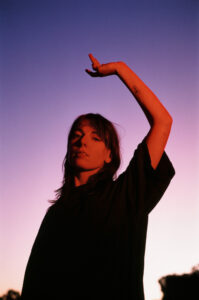 No, but I probably should then.
No, but I probably should then.
It is so beautiful. I recommend it to everyone. It opened my eyes to a different way to look at the natural world and interact with nature. There are some quotes in it that really helped me. There is one, which I think is like, “Nature knows us even when we are lost.” And that captures what I was going through when I was feeling really, really low. I was spending a lot of time just lying in my front yard, watching the birds in the sky, and tuning into my body and the natural way of being. I stopped feeling as if I had to figure everything out by myself. I started believing more that the answers are in nature. They are ancient and smarter than the human brain. I started engaging with nature in a more spiritual way than I ever had before. So, it made a lot of sense that that would make its way into the music. I think it will keep happening. As I am just writing now, little bits and pieces, I still want everything to feel related to nature. I am planning a live show and I am trying to figure out how to get the nature sounds in it. It feels like such an important thing. Especially now that so much of music is digital and requires screens. Every time I have to make a social media post, I just want to be a reminder of the natural world, for myself more than anything. That when I am looking at my phone, I am thinking about the sky and water.
You did something else, anti digital. You’ve put 13 songs on the record and all of them are quite long. How did you decide which ones to choose, to keep them long, and to create a wholesome, big piece of art instead of little things that might be more profitable in a streaming logic?
I was not thinking about it very strategically. I was doing what naturally felt flowing in the decision-making processes. That was probably just due to being overwhelmed. I did not know what the right decision was, so I just did what felt right. There were songs that did not make it on that I really loved. That is okay, I will do something else with them soon. I think these 13 just felt like they fit together in the most natural story arc and sonic world. But as it turns out, they are too long, and I had to trim them for the vinyl. I added up the time lengths wrong, and by the time it came to making the vinyl, they were like, “You have to cut several minutes off the record.” So, the intros and outros are all trimmed. I just was not thinking about it, which is probably sort of silly, but so I am thinking about it now. I will probably think about it next time.
In the end, it actually is pro- and not anti-digital then, because it can just be as it is.
I know. That is such a luxury. If you want to add another song to the record or do a deluxe version, you probably could in a couple of weeks. That is great. It is tempting. I had temptation when the record was hard to make. Sometimes I just wanted to make something shit on my laptop, put it on SoundCloud, and be like, “Why do we have to do all of these things?” Now I feel happy that there is a full professional record. But yeah, sometimes I just wanted to put it out.
Thank you for the interview!


